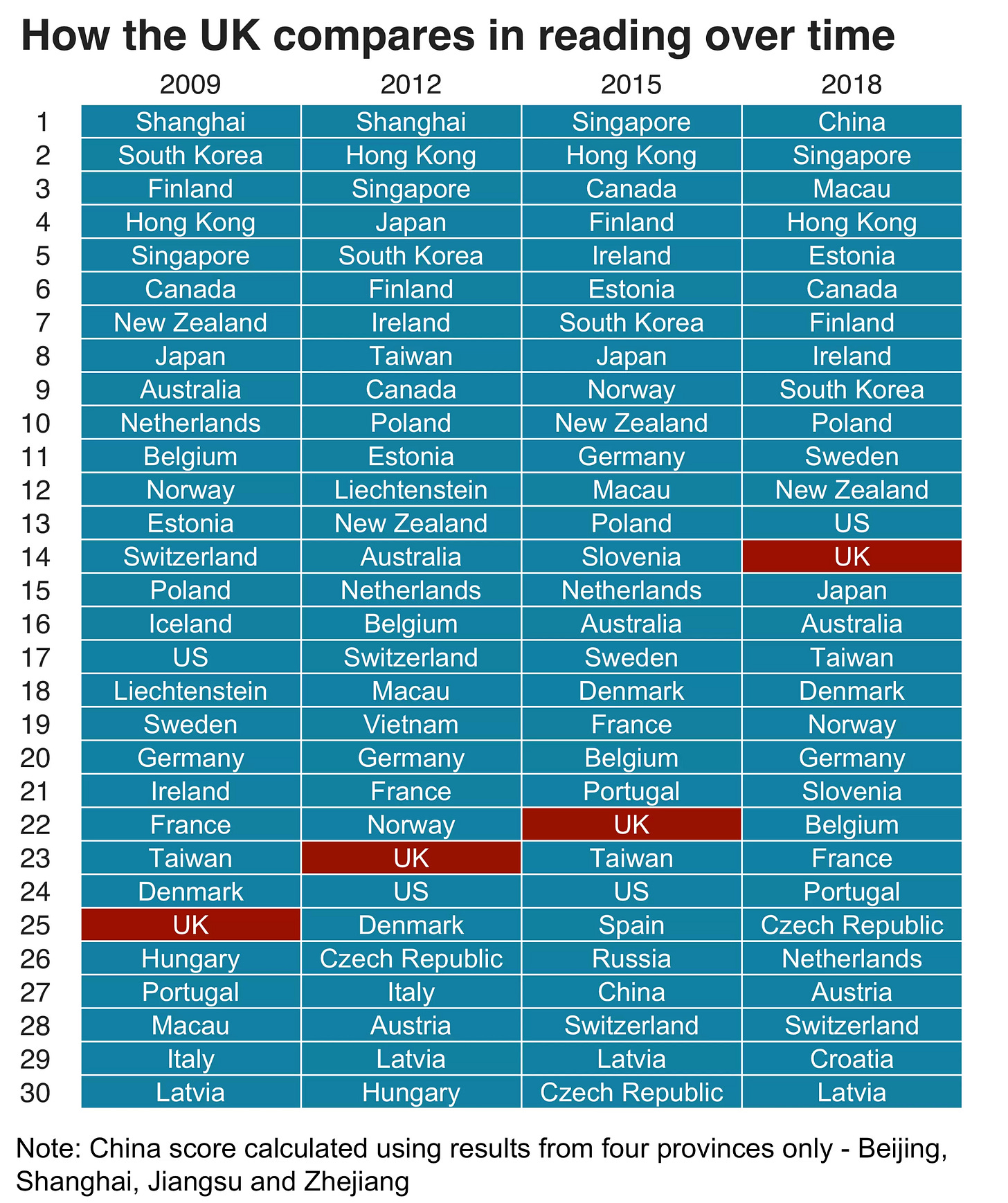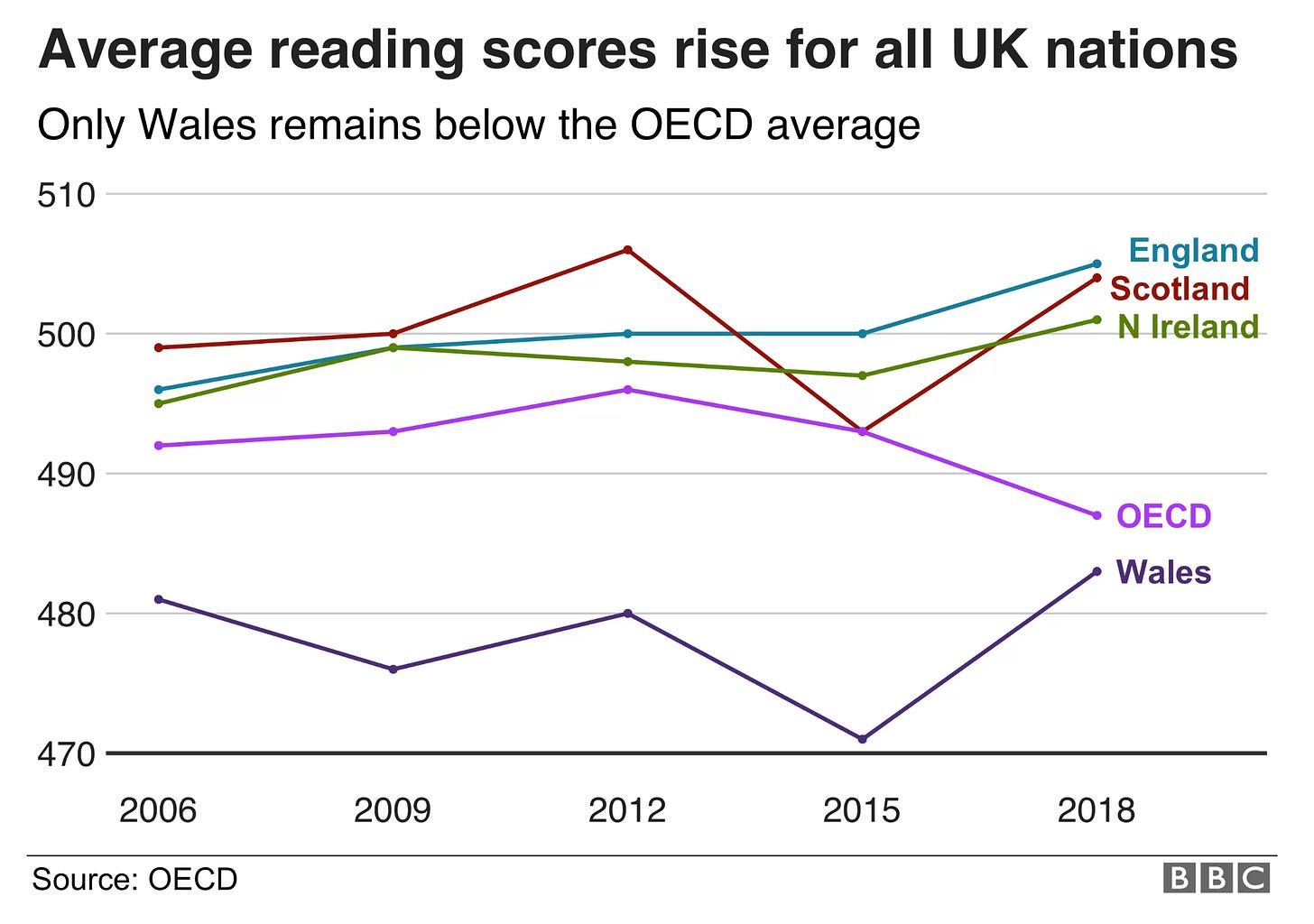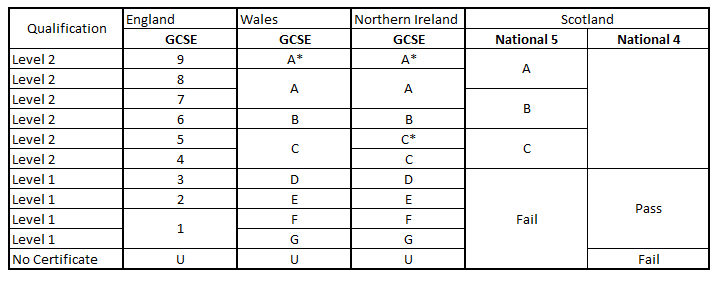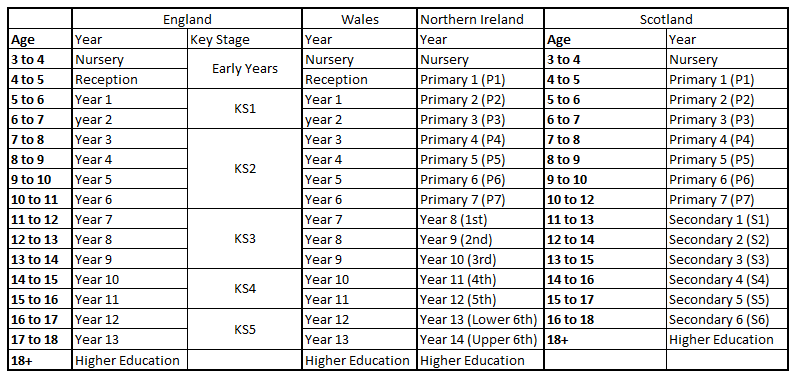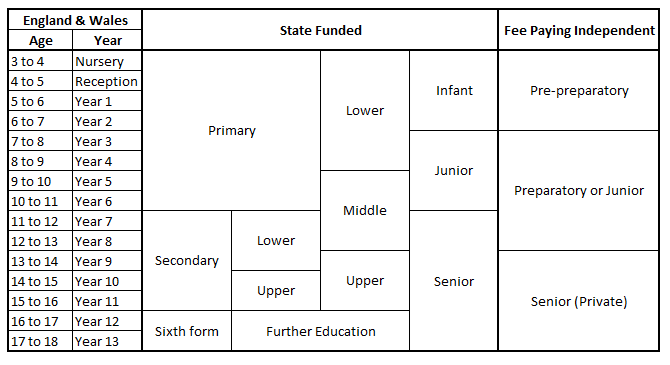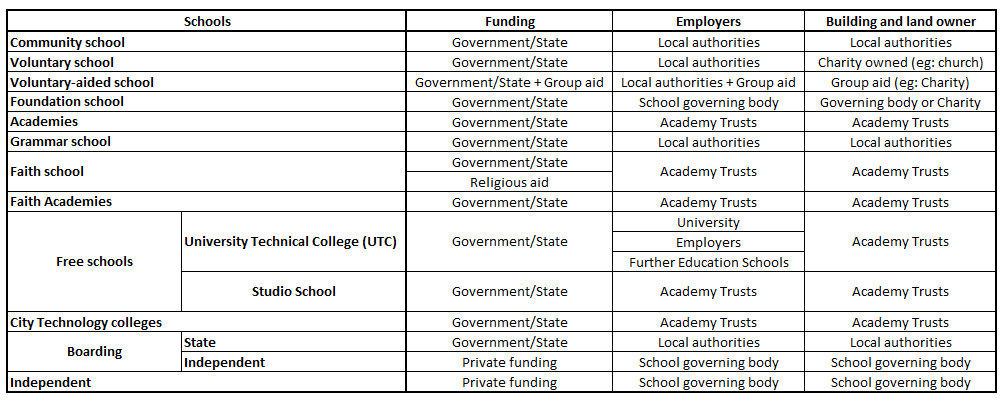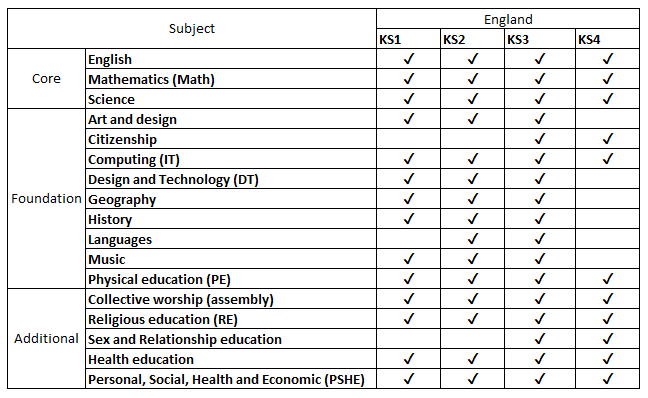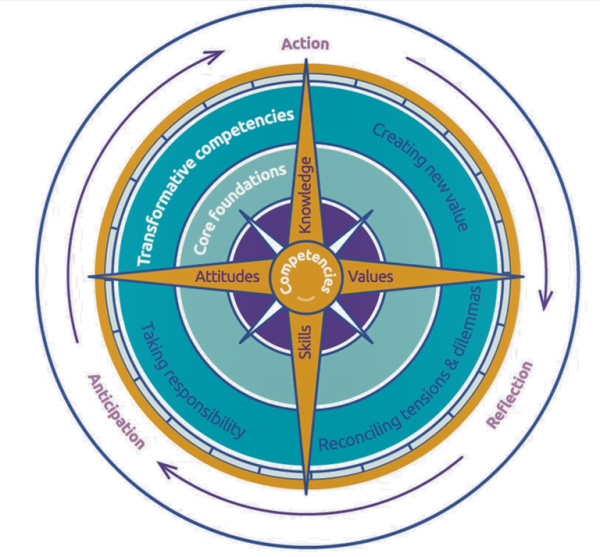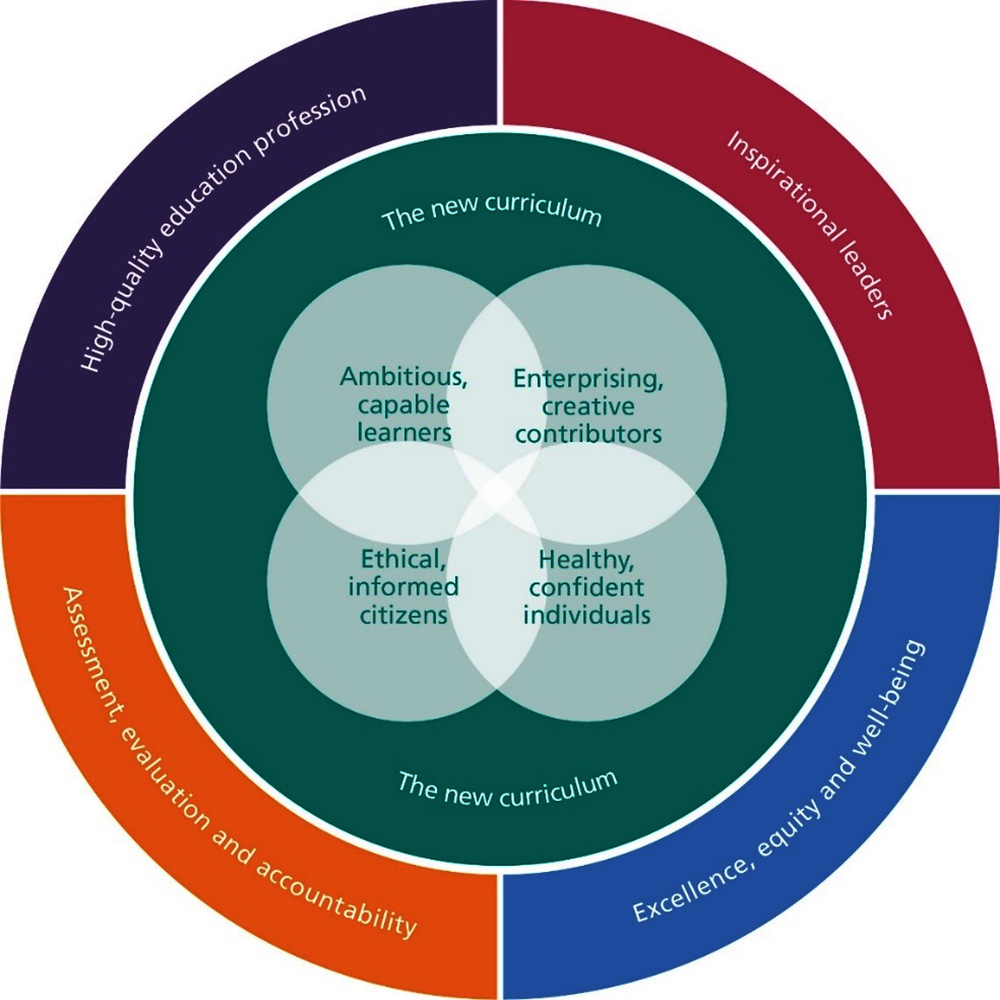PISA isn’t helping
The education systems, as much as people like to moan, have done a lot of good.
It has increased literacy, numeracy, and school subject skills in all of us. Of course, with variation.
But when I saw PISA (Programme for International Student Assessment) score education systems, with the UK as 1 system, I got confused.
The UK is a country of countries, much like Great Britain.
And PISA has separate scores for each country, or nation, as they call it.
I think combining the scores oversimplifies UK education.
Comparisons, like country X vs the UK or country Y vs Britain, doesn't give fair results.
If we want to improve our education systems, we should be looking at the features of the system - which are different across the UK countries.
System management
Each country has different governance:
England – UK Government (Department for Education (DfE))
Scotland – Scottish Government (Since act of 1998)
Wales – Welsh Government (Department for Education and Skills (DfES))
Northern Ireland – Northern Ireland Executive.
Through conversation, 'UK' is often associated with the UK government, which is the English system, and the English system only.
Therefore, a change to the 'UK system' might not apply to UK in every country.
Differences in the systems
School, could encompass all levels of formal education, but for this article I mean from EYFS (early years foundation stage) to secondary.
This leaves further and higher education for another conversation.
Starting school
Going through the English system, I assumed all UK school years started in September, and goes to July for the Summer.
Turns out each country has a different 1st quarter, Scotland technically having 2.
Time in school
England and Wales have a minimum hour week with 380 sessions or 190 days.
There are exceptions:
Early years
Further education 16-19
Specialist settings
But Northern Ireland and Scotland don't have minimum lengths.
This results in students getting drastically different time in school.
Doing some estimated maths:
English student ~33 hour week
Scottish student ~27 hour week
5 hours a week different
38 weeks in a school year
5 years in secondary education
38 x 5 x 5 = 950 hours
950/24 = 39.6 days
950/12 = 79.2 days
About 80 awake days worth of school difference.
Looking at those average reading scores in 2018 from PISA, I am not sure where those added hours go.
Testing
Assessments are not enjoyable for most involved. I would argue, they have room for improvement – he says with a hint of sarcasm.
Primary Testing
Teacher assessments are not graded, often starting in EYSF, going all the way through English schooling.
Wales wait till Year 2. Scotland and Northern Ireland, P1.
English students, phonics test in Year 1. Potentially re-tested in year 2.
In researching this topic, I needed to look at what 'phonics' meant. Reading and writing - I think.
Then English students in year 6, sit SAT (Scholastic Assessment test) tests for:
Reading
Maths
English Punctuation (Optional in Year 2)
English Spelling (Optional in Year 2)
In addition, a multiplication test in year 4.
But Scotland, Wales, and Northern Ireland DON’T do SAT tests or the multiplication test.
It seems, England is on its own with the primary testing as well.
Again, thinking about the PISA results. I am not sure the added tests are making a significant difference.
Secondary testing
All countries have the option to take GCSE (General Certificate of Secondary Education) exams.
But most Scottish students take National 4’s and 5's instead. The Scottish national standardized assessments.
This results in different qualification grades.
Even the exams could be different, with Wales introducing greater emphasis on technology in 2025.
Years in school
If the UK system was one system, this would be far simpler.
Nursery is the only consistency across the 4 countries.
Even in the same countries, years can have different names.
As Scotland has 2-year ends, the ages differ in range to the other 3 countries.
Naming of schools
If the name is not "misleading" then most school names are appropriate.
However, my interpretation of misleading must be different.
Let's take St Catherine's College as an example:
It’s a school, not a college. No FE students.
It’s a faith school, but not a school, an academy.
So it is a faith academy.
Past naming conventions make it difficult, but to me, St Catherine's Academy would be a clearer fit.
Similarly, the stages of school are riddled with past conventions.
This is just for England and Wales.
Showing the types of schools in England, exposes the complexity.
Hopefully, this illustrates some background complexity of the systems. None of which is acknowledged when the countries are combined into 1 system.
Curriculum
When it comes to curriculum, I would argue these differences are the most significant to everyday learning experiences.
England
In England, the current framework document is over 10 years old with a variety of optional subjects in KS4, not shown in the compulsory table below.
This curriculum is subject focused.
Adding new GCSE subjects, like BSL (British Sign Language), being proposed as a new GCSE for 2025.
Wales
As of September 2022, Wales redesigned their curriculum to follow the OECD (Organization for Economic Co-operation and development) compass.
Choosing to focus on 4 main principles, those in the middle 4 circles, rather than subjects.
Combining the primary and secondary paths to follow 6 focus areas:
Expressive arts – Drama, Music
Health and Wellbeing – Physical education, Mental wellbeing, life skills
Humanities – Geography, History, Religion, Social Sciences
Languages, Literacy, and Communication – English and Welsh
Mathematics and Numeracy
Science and Technology - Chemistry, Biology, Physics, ICT, DT
This curriculum moves away from subjects being the focus.
Scotland
Scotland were ahead of Wales in their shift from subjects.
The Scottish Curriculum for Excellence (CfE) focuses on 4 key principles:
Challenge and enjoyment.
Breadth.
Progression.
Depth.
CfE then covers 8 broad areas:
Expressive arts
Health and Wellbeing
Languages
Mathematics
Religious and moral education
Sciences
Social studies
Technologies
Focusing on 4 capacities:
Opportunities for personal achievement
Interdisciplinary learning
Ethos and life of the school as a community
Curriculum areas and subjects
Northern Ireland
The curriculum is build from the National Curriculum in England, but does differ by setting out 9 areas:
Language and literacy
Mathematics and Numeracy
Modern Languages
The Arts
Environment and society
Science and Technology
Learning for life and work
Physical education
Religious education
Making England the only UK country to still have a main focus on subjects.
Why this matters
The aim, was to show the differences in these systems.
Not to say, one is better than another.
But that learner experiences are drastically different.
Categorizing and grouping systems for comparison, takes our eye off the everyday actions that make a difference.
This is what I am learning about.
My Notes: Click here




